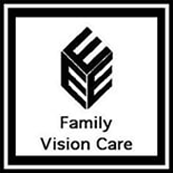Recognize These Common Eye Diseases Symptoms
Recognize the Symptoms of These Common Eye Diseases
.png)
When it comes to observing the world around you, there are few organs more important than the eyes.
Our eyes are easy to take for granted. We use them to see colors, shapes, and movement, but they are so much more than purely functional. Our eyes allow us to enjoy art, stories, and precious time with friends and family.
We use our eyes for almost everything. Because of this, if eye issues arise, they can have a massive effect on our lifestyle and happiness.
Unfortunately, many people suffer from eye diseases that can significantly impact their vision and quality of life. In this post, we will discuss some common eye diseases and their symptoms so that you can recognize them and seek medical attention if necessary.
Top Symptoms for These Five Common Eye Diseases
In this post, we will discuss some of the symptoms of common eye diseases that many Americans will face in their lifetime.
Below are the symptoms of common eye problems and eye diseases.
Glaucoma
Glaucoma is one of the most common eye conditions in the world today.
Not a singular disease, glaucoma is a group of conditions that damage the optic nerve, which carries visual information from the eye to the brain.
The damage is usually caused by elevated pressure in the eye, and it can lead to vision loss and even blindness if left untreated. Symptoms of glaucoma can include blurred vision, eye pain, headaches, and the appearance of halos around lights.
However, many people with glaucoma have no symptoms until the disease is advanced, which is why regular eye exams are crucial.
Cataracts
Cataracts occur when the eye’s natural lens becomes clouded, which can cause vision problems such as blurriness, sensitivity to light, and difficulty seeing at night.
Cataracts can develop slowly over time and are most common in older adults. Symptoms may include seeing halos around lights, needing brighter light to read, and having trouble distinguishing colors.
Be on the lookout for these signs, especially in older adults, and schedule regular appointments with your optometrist to check for signs of cataracts.
Age-Related Macular Degeneration
Age-related macular degeneration (AMD) is a disease that affects the macula, which is part of the retina responsible for central vision. AMD causes damage to the macula, leading to vision loss in the center of the visual field.
Symptoms of AMD include blurriness, difficulty seeing fine details, and distortion of straight lines.
AMD can be classified as dry or wet, with wet AMD being more severe and requiring urgent medical attention. Treatment options for AMD depend on the type and severity of the disease and may include medications, laser therapy, or surgery.
Diabetic Retinopathy
Diabetic retinopathy is a complication of diabetes that harms the blood vessels in the retina, causing them to leak fluid or bleed.
This can lead to vision loss and blindness if left untreated. Symptoms of diabetic retinopathy can include blurred vision, dark spots or strings floating in the field of vision, and difficulty seeing at night. People with diabetes should have regular eye exams to monitor for diabetic retinopathy, as early detection and treatment can prevent or slow vision loss.
Learn more about diabetes and eye health here!
Dry Eye Syndrome
Dry eye syndrome is a condition that occurs when the eyes do not produce enough tears, or the tears evaporate too quickly.
This can cause discomfort, irritation, and vision problems. Symptoms of dry eye syndrome can include redness, burning or stinging, a feeling of grittiness or sand in the eye, and blurred vision.
Treatment for dry eye syndrome includes over-the-counter or prescription eye drops, lifestyle changes such as using a humidifier or taking breaks from staring at screens, or medical procedures to block tear ducts and keep tears in the eye. Schedule an appointment with your optometrist if symptoms persist.
Better Eye Health at Oxford Family Vision Care
Don’t take your eyes for granted!
We use our eyes every day. If you have noticed a drop in eye function or any of the symptoms of the common eye diseases discussed above, it is time to book an appointment with Dr. Collins of Oxford Family Vision Care.
Eye disease disproportionally affects seniors. Here is your guide on vision care for seniors.
Dr. Collins has over three decades of experience and is here to help your eyes stay healthy and functional.
Just a short walk from Miami University, Oxford Family Vision Care proudly serves the residents of Oxford, Ohio for all their eye health needs.
If it has been a while since your last eye appointment, then it is time to reach out to Oxford Family Vision Care today! Click here to book your appointment!
Satisfied with the Oxford Family Vision Care difference? Leave us a review on Google here!
Want more free content? Follow us on Facebook and Instagram for more!
